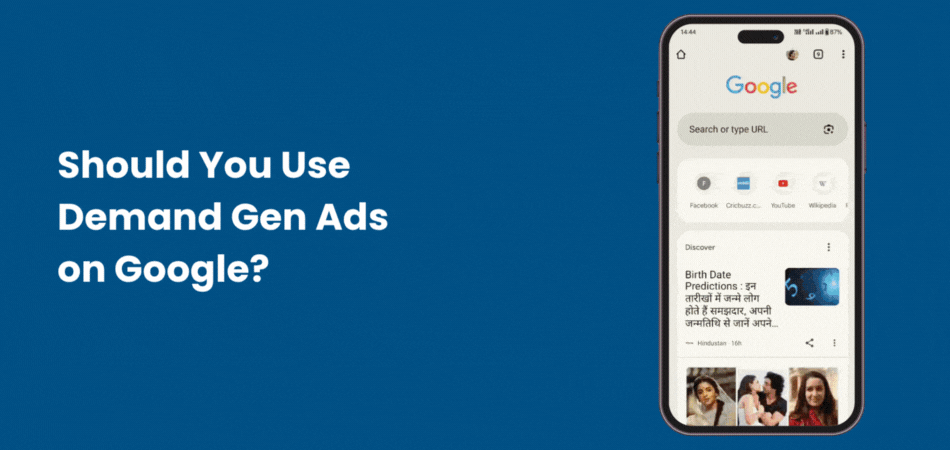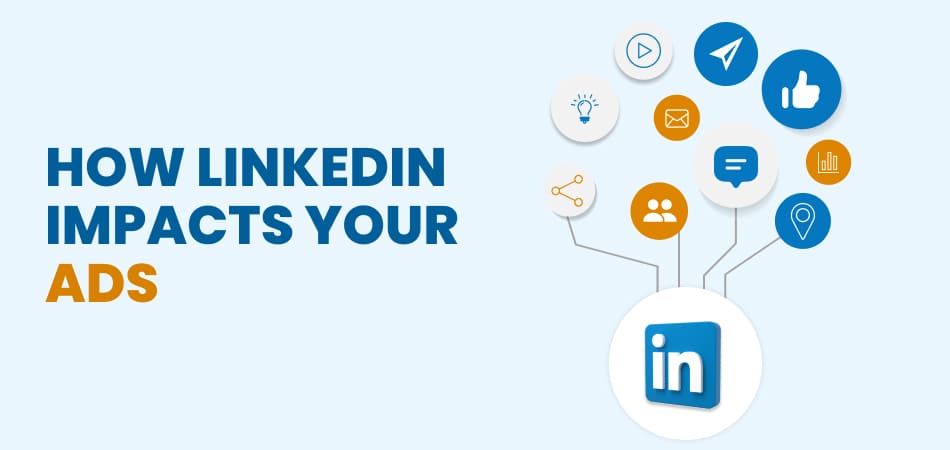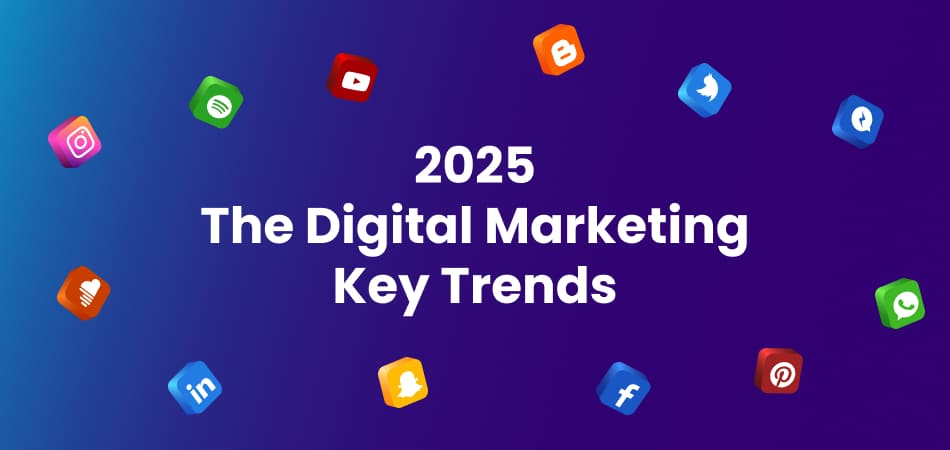What Are Demand Gen Ads?
If you’re spending money on Google Ads and wondering where things are headed in 2025, meet Google’s Demand Gen Ads. Demand Gen (short for Demand Generation) Ads are designed specifically to help brands reach new audiences and drive interest before they’re actively searching for your product or service. Think of them as digital billboards across Google’s ecosystem.
Why This Topic Matters in 2025
With competition getting fiercer and customer journeys becoming less linear, Demand Gen Ads offer a more flexible, visually engaging way to capture attention. Brands are shifting budget from search-only to these new formats for good reasons.
Understanding Demand Gen Ads in Google
Definition
Demand Gen Ads are a campaign type in Google Ads that use AI-driven targeting and visual content to generate demand across YouTube, Gmail, and Discover feeds.
How It Differs from Other Google Ads Formats
| Feature | Demand Gen Ads | Search Ads | Display Ads |
| Focus | Awareness + Consideration | Intent-based | Awareness |
| Platforms | YouTube, Discover, Gmail | Google Search Network | Websites across Display Network |
| Creative Formats | Carousels, Images, Videos | Text ads | Static images, banners |
| AI Usage | High | Moderate | High |
How Demand Gen Ads Work
The Role of Google’s AI in Demand Gen
Google’s AI analyzes user behavior across platforms to show your ads to people most likely to be interested, even if they haven’t searched for your product yet.
Platforms Where Demand Gen Ads Appear
- YouTube (Home and Watch Next feeds)
- Google Discover feed
- Gmail (Promotions and Social tabs)
Ad Format Options
- Single image ads
- Carousels (up to 10 images)
- Videos
Benefits of Using Demand Gen Ads
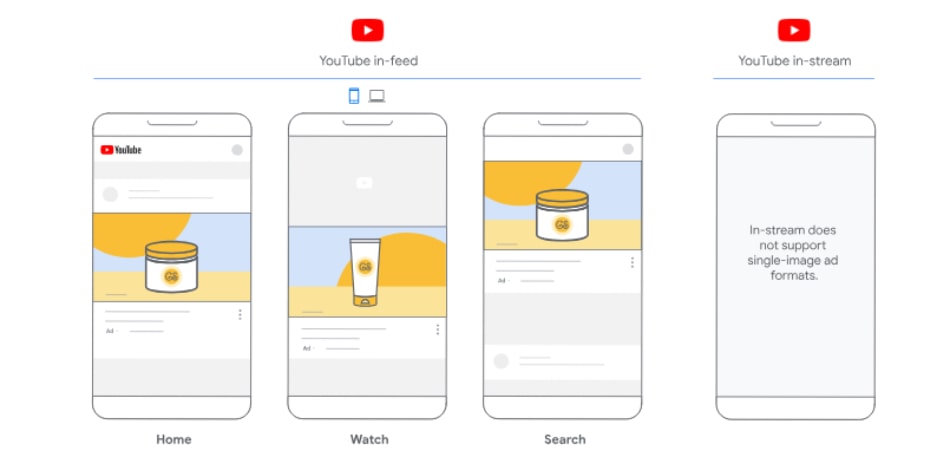
Increased Brand Awareness
Instead of waiting for search intent, you create it proactively.
Better Audience Targeting
Uses lookalike segments and first-party data from your business.
Multi-Platform Reach
You’re visible on Google’s most visited feeds, not just search results.
When Should You Use Demand Gen Ads?
Suitable Industries
- Retail/eCommerce
- SaaS/Software
- Fitness/Health
- Education
Types of Campaigns That Benefit
- Product launches
- Seasonal promotions
- Brand-building initiatives
Demand Gen Ads vs. Discovery Ads
Key Differences
While similar to Discovery Ads, Demand Gen includes advanced audience targeting and newer creative options.
Comparison Table
| Feature | Demand Gen Ads | Discovery Ads |
| Launched Year | 2023-2024 | 2019 |
| AI Customization | Higher | Moderate |
| Video Format Support | Yes | Limited |
| Creative Options | Carousels, Videos, Images | Images, Text |
Setting Up a Demand Gen Campaign in Google Ads
Step-by-Step Setup Guide
- Log in to Google Ads.
- Click “New Campaign.”
- Choose “Demand Gen” as the objective.
- Upload creatives: images, videos, carousels.
- Set targeting: interests, lookalikes, custom segments.
- Define budget and bidding strategy.
- Launch campaign.
Important Settings and Customizations
- Use custom segments for best results.
- Leverage audience insights.
- Test different creative formats.
Cost & Budget Considerations
How Much Do Demand Gen Ads Cost?
Costs vary by industry and targeting level. Based on 2025 stats:
| Industry | Avg. CPC (Cost Per Click) | Avg. CPM (Cost Per 1,000 Impressions) |
| eCommerce | $0.40 – $1.20 | $4 – $8 |
| SaaS | $0.80 – $2.00 | $6 – $12 |
Budget Planning Tips
- Start small, scale after testing.
- Monitor performance weekly.
- Allocate 10–20% of total ad spend initially.
Real-World Examples of Demand Gen Ads
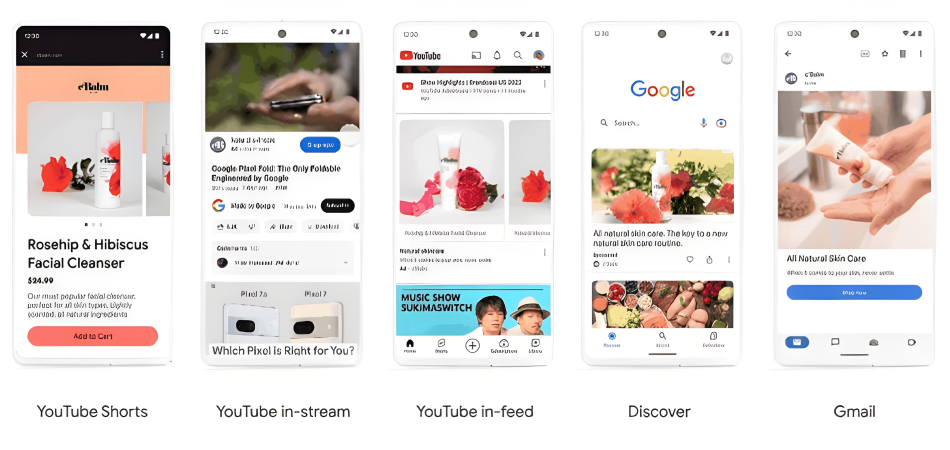
Case Study 1: eCommerce Store
A fashion retailer increased site traffic by 30% in 2 weeks using carousel ads on YouTube.
Case Study 2: SaaS Product Launch
A software brand used video Demand Gen Ads to drive a 25% boost in trial sign-ups.
Statistics and Trends in Demand Gen Ads (2025)
Adoption Rate
Over 67% of Google advertisers in 2025 are using Demand Gen Ads as part of their mix.
Conversion Rates
Average conversion rate sits at 5–7%, depending on the industry.
ROI Statistics
For every $1 spent, brands report an average of $4 in return.
Example Charts & Screenshots
Common Mistakes to Avoid
Over-Targeting
Don’t get too narrow with audience settings or you’ll limit reach.
Ignoring Creative Best Practices
Low-quality visuals will kill engagement. Invest in professional creatives.
Best Practices for Demand Gen Campaigns
Creative Guidelines
- Use high-resolution images.
- Write engaging headlines and descriptions.
Testing and Optimization
- A/B test formats.
- Monitor engagement metrics like CTR and video views.
Tools to Support Demand Gen Advertising

Google Ads Editor
For bulk ad management.
Third-Party Tools
- Canva for creatives.
- SEMrush and Ahrefs for competitive analysis.
Final Verdict: Should You Use Demand Gen Ads?
If your business values brand awareness and multi-platform reach, yes—Demand Gen Ads should be on your radar. For lead-gen-only campaigns, they may not always be the top choice, but for everything else, it’s a smart move.
Conclusion
Demand Gen Ads are reshaping how brands think about Google advertising in 2025. Their mix of AI, creative flexibility, and broad platform reach make them a must-consider for modern marketers. Whether you’re a small business or a large enterprise, exploring Demand Gen Ads could unlock new growth opportunities.
FAQs
How Long Does It Take to See Results?
Typically, you’ll notice engagement within 7–14 days, but full optimization may take a month.
Are Demand Gen Ads Suitable for Small Businesses?
Yes, especially for those focusing on brand visibility and new customer acquisition.
Can I Combine Demand Gen Ads with Other Campaigns?
Absolutely. Many brands run Demand Gen alongside Search and Performance Max campaigns.
What Skills Do I Need to Manage Demand Gen Ads?
Basic Google Ads knowledge, plus understanding of creative best practices.
How Is Performance Measured?
Via Google Ads dashboard: impressions, clicks, conversions, and ROAS (Return on Ad Spend).
